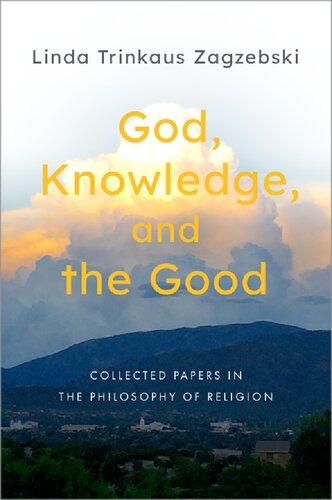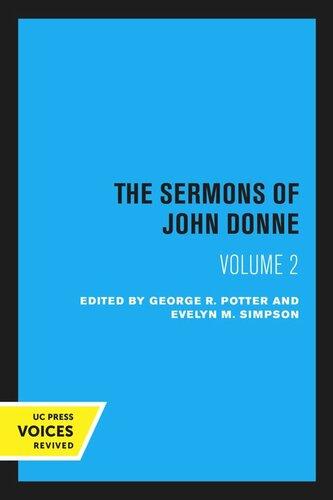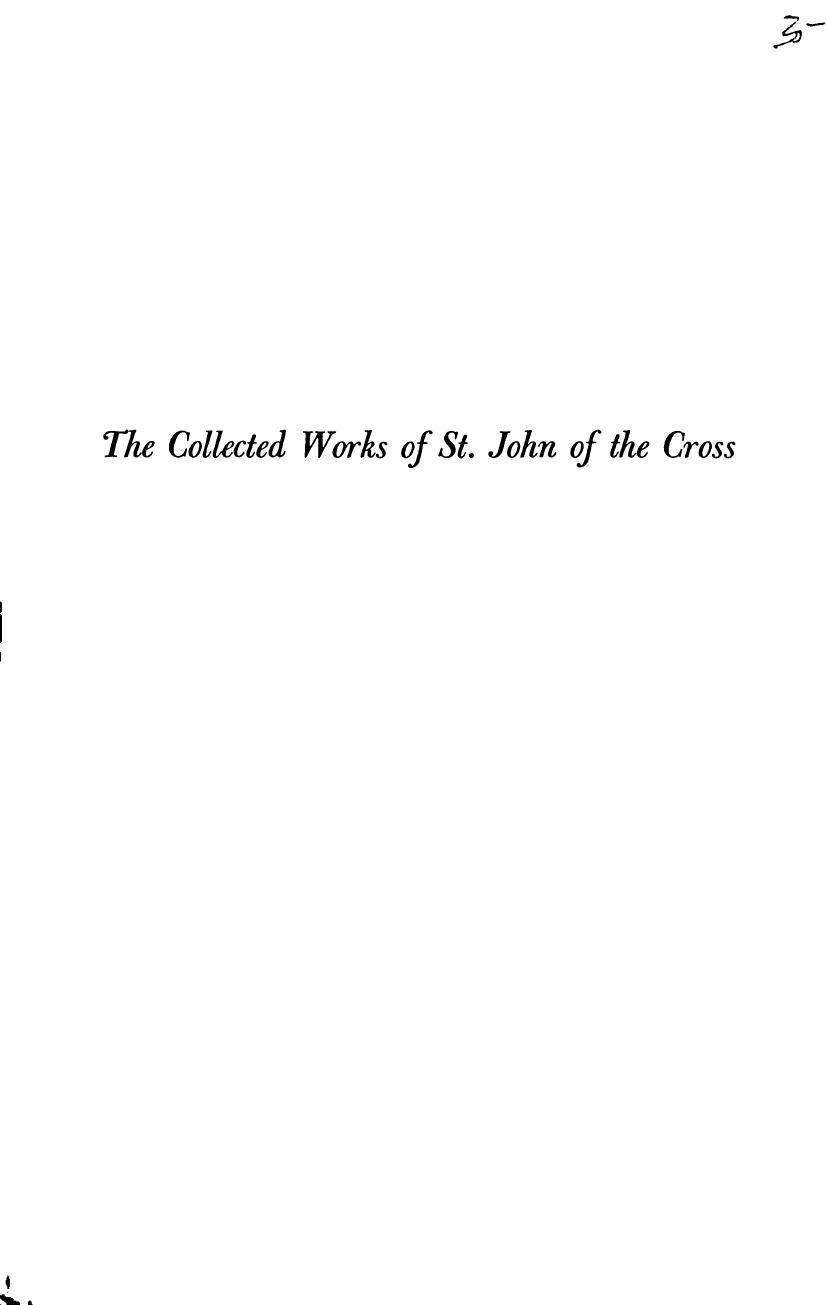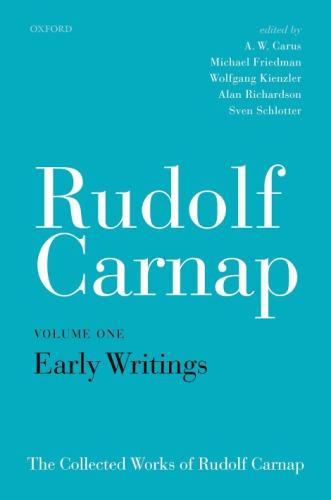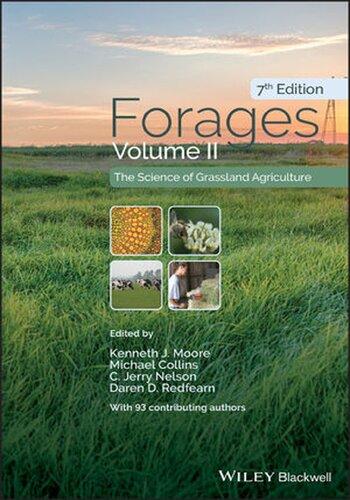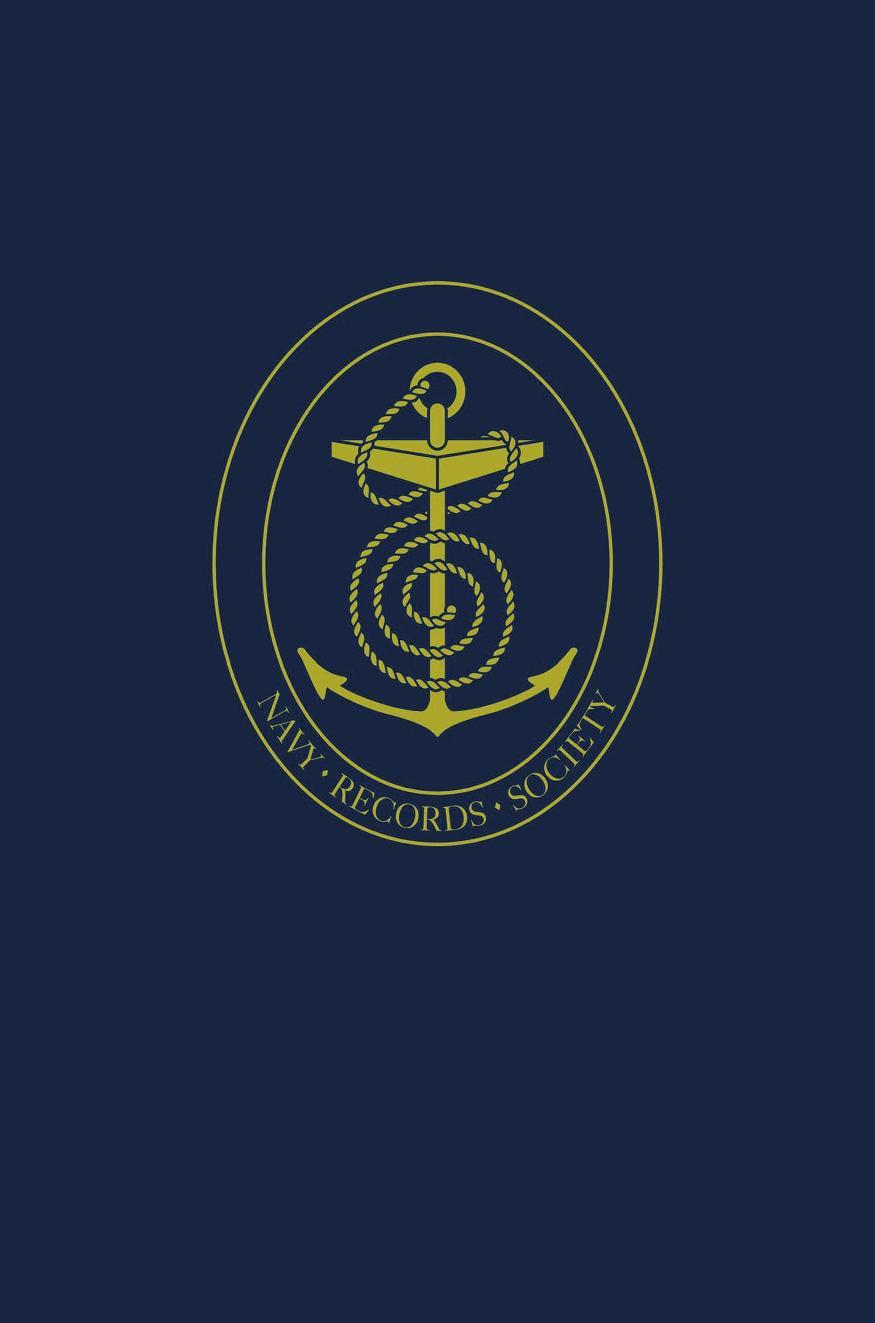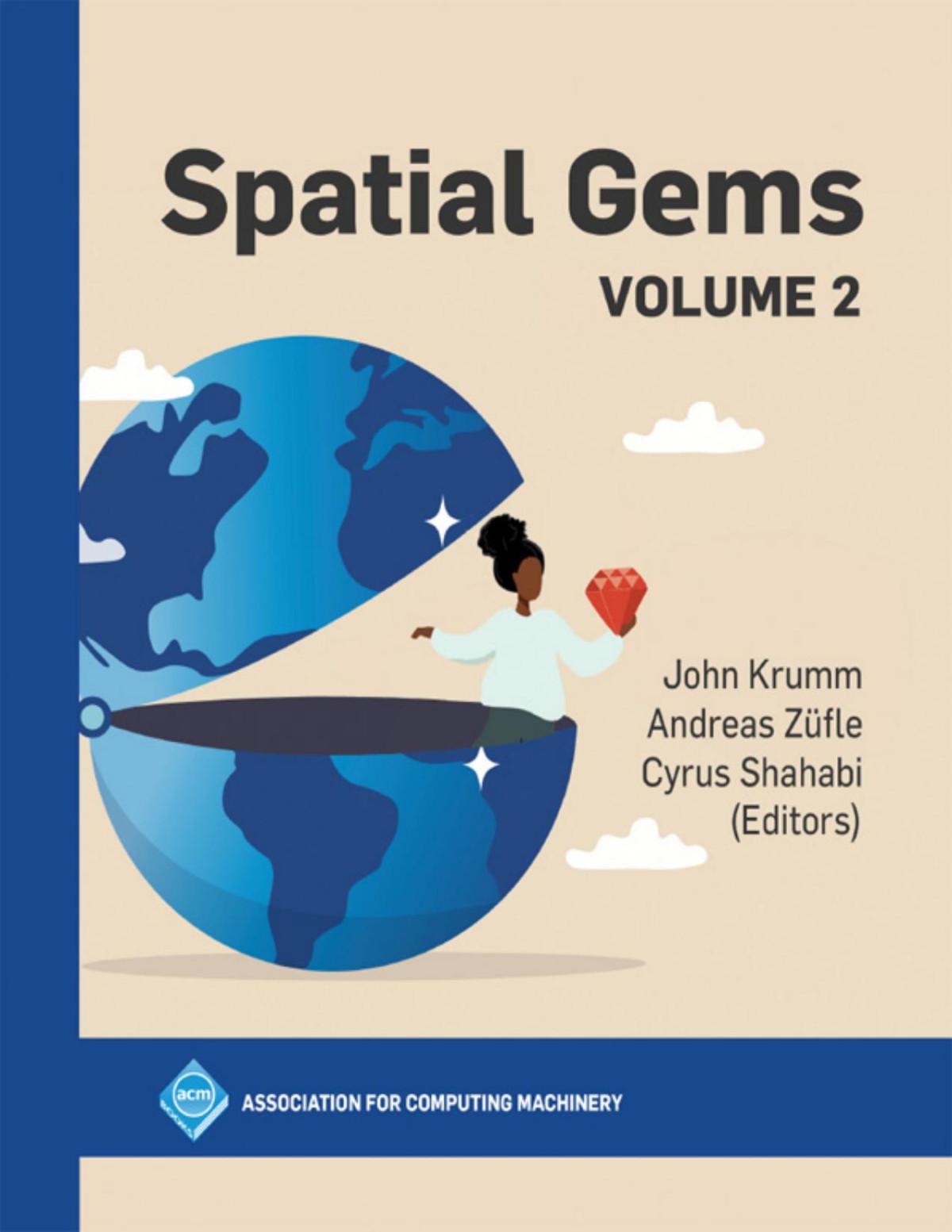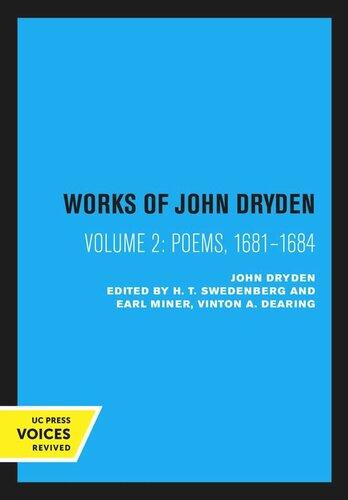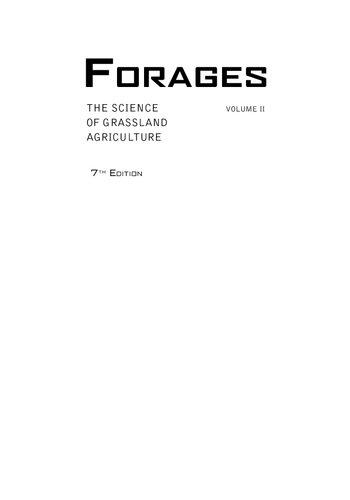The Collected Papers of J. L. Moles
Volume 2: Studies in Greek and Latin Literature
Edited by John Marincola
Cover illustration: Diogenes (1882) by John William Waterhouse. Art Gallery of NS W With permission
Library of Congress Cataloging-in-Publication Data
Names: Moles, J. L. (John L.), author. | Marincola, John, editor.
Title: The collected papers of J.L. Moles / edited by John Marincola.
Description: Leiden ; Boston : Brill, [2023 ]- | Includes bibliographical references and index. | Contents: Volume 1 . Studies in Dio Chrysostom, Cynic philosophy, and the New Testament —
Identifiers: LCCN 2023001839 (print) | LCCN 2023001840 (ebook) |
ISBN 9789004537101 (v. 1 ; hardback) | ISBN 9789004538047 (v. 2 ; hardback) | ISBN 9789004541283 (hardback) | ISBN 9789004538719 (v. 1 ; ebook) | ISBN 9789004538726 (v. 2 ; ebook)
Subjects: LCSH : Rome—Historiography. | Greece—Historiography. | Dio, Chrysostom. | Cynics (Greek philosophy) | Latin poetry—History and criticism. | Bible. New Testament—Criticism, interpretation, etc.
Classification: LCC D56 .M65 2023 (print) | LCC D56 (ebook) | DDC 937.007202 —dc23 /eng/20230131
LC record available at https://lccn.loc.gov/2023001839
LC ebook record available at https://lccn.loc.gov/2023001840
Typeface for the Latin, Greek, and Cyrillic scripts: “Brill”. See and download: brill.com/brill-typeface
isbn 978-90-04-53710-1 (hardback, vol. 1)
isbn 978-90-04-53871-9 (e-book, vol. 1)
isbn 978-90-04-53804-7 (hardback, vol. 2)
isbn 978-90-04-53872-6 (e-book, vol. 2)
isbn 978-90-04-54128-3 (hardback, set)
Copyright 2023 by the Estate of J. L. Moles. Published by Koninklijke Brill NV, Leiden, The Netherlands. Koninklijke Brill NV incorporates the imprints Brill, Brill Nijhoff, Brill Hotei, Brill Schöningh, Brill Fink, Brill mentis, Vandenhoeck & Ruprecht, Böhlau, V&R unipress and Wageningen Academic.
Koninklijke Brill NV reserves the right to protect this publication against unauthorized use. Requests for re-use and/or translations must be addressed to Koninklijke Brill NV via brill.com or copyright.com.
This book is printed on acid-free paper and produced in a sustainable manner.
For Rachel and Thomas
Contents
Preface xi
John Marincola
Appreciation xiv
Ruth Chambers
Publications of J. L. Moles xv
Abbreviations xxii
Permissions xxiv
Professor J. L. Moles XXVIII
A. J. Woodman
Introduction to Parts 4 and 5 1
Christopher Pelling
Part 4
Studies in Greco-Roman Biography
31 Plutarch, Crassus 13.4–5 and Cicero’s de consiliis suis (1982) [8]* 11
32 The Ides of March and Anna Perenna (1982) [7] 14
33 Some ‘Last Words’ of M. Iunius Brutus (1983) [14] 17
34 Fate, Apollo, and M. Junius Brutus (1983) [17] 35
35 Plutarch, Brutus, and the Ghost of Caesar (1985) [27] 43
36 The Attacks on L. Cornelius Cinna, Praetor in 44 bc (1987) [32] 45
37 Review of J. Geiger, Cornelius Nepos and Ancient Political Biography (1989) [35] 49
38 Review of P. A. Stadter, A Commentary on Plutarch’s Pericles (1992) [49] 55
* Numbers in square brackets refer to the section ‘Publications of J. L. Moles’.
39 Review of N. Horsfall, Cornelius Nepos: a Selection, including the Lives of Cato and Atticus (1992) [46] 65
40 The Text and Interpretation of Plutarch, Vit. Cic. 45.1 (1992) [43] 69
41 Plutarch, Vit. Ant. 31.3 and Suetonius, Aug. 69.2 (1992) [44] 76
42 On Reading Cornelius Nepos with Nicholas Horsfall (1993) [52] 81
43 Textual and Interpretative Notes on Plutarch’s Cicero (1993) [54] 91
44 Plutarch, Brutus, and Brutus’ Greek and Latin Letters (1997) [71] 100
Part 5
Studies in Greco-Roman Historiography
45 Virgil, Pompey, and the Histories of Asinius Pollio (1983) [15] 131
46 The Interpretation of the ‘Second Preface’ in Arrian’s Anabasis (1985) [28] 134
47 Review of A. J. Woodman, Rhetoric in Classical Historiography: Four Studies (1990) [38] 149
48 Review of V. J. Gray, The Character of Xenophon’s Hellenica (1992) [45] 154
49 Truth and Untruth in Herodotus and Thucydides (1993) [53] 159
50 Livy’s Preface (1993) [51] 190
51 Xenophon and Callicratidas (1994) [61] 224
52 Herodotus Warns the Athenians (1996) [69] 247
53 Cry Freedom: Tacitus, Annals 4.32–5 (1998) [72] 272
54 Ἀνάθημα Καὶ Κτῆμα: the Inscriptional Inheritance of Ancient Historiography (1999) [73] 365
55 A False Dilemma: Thucydides’ History and Historicism (2001) [76] 411
56 Herodotus and Athens (2002) [79] 439
57 ‘Saving’ Greece from the ‘Ignominy’ of Tyranny? The ‘Famous’ and ‘Wonderful’ Speech of Socles (Herodotus 5.92) (2007) [85] 462
58 Narrative and Speech Problems in Thucydides Book 1 (2010) [86] 490
Introduction to Parts 6 and 7 518
John Marincola
Part 6
Greek Literature
59 Notes on Aristotle, Poetics 13 and 14 (1979) [3] 525
60 A Neglected Aspect of Agamemnon 1389–92 (1979) [4] 548
61 A Note on Antigone 1238f. (1980) [5] 562
62 Aeschylus, Agamemnon 36–7 Again (1984) [20] 567
63 Philanthropia in the Poetics (1984) [22] 571
64 Review of S. Goldhill, Language, Sexuality, Narrative: The Oresteia (1986) [30] 583
Part 7
Latin Literature
65 A Note on Cicero, ad Quintum fratrem 2.10(9).3 (1982) [6] 605
66 Aristotle and Dido’s Hamartia (1984) [18] 609
67 Politics, Philosophy, and Friendship in Horace Odes 2.7 (1987) [31] 618
68 The Tragedy and Guilt of Dido (1987) [33] 632
69 The Dramatic Coherence of Ovid, Amores 1.1 and 1.2 (1991) [42] 644
70 Review of R. Mayer, ed., Horace: Epistles I (1994) [68] 649
71 Reconstructing Plancus (Horace, C. 1.7) (2002) [77] 663
72 Poetry, Philosophy, Politics, and Play: Epistles 1 (2002) [78] 703
73 Vergil’s Loss of Virginity: Reading a Life (2014) [97] 725
74 Horace: Life, Death, Friendship, and Philosophy (2012) [90] 771
Index Locorum 779
Envoi
Publications of J. L. Moles
Note: The dates for unpublished articles are approximations and based on indications in the manuscripts.
1978
1. ‘The Career and Conversion of Dio Chrysostom’, JHS 98: 79–100.
1979
2. A Commentary on Plutarch’s Brutus (diss. Oxford; unpublished; see below, no. 100).
3. ‘Notes on Aristotle’s Poetics 13 and 14’, CQ n.s. 29: 77–94.
4. ‘A Neglected Aspect of Agamemnon 1389–92’, LCM 4: 179–89.
1980
5. ‘A Note on Antigone 1238f.’, LCM 5: 193–6.
1982
6. ‘A Note on Cicero, ad Quintum fratrem 2.10(9).3’, LCM 7: 63–5.
7. ‘The Ides of March and Anna Perenna’, LCM 7: 89–90.
8. ‘Plutarch, Crassus 13.4–5, and Cicero’s de consiliis suis’ , LCM 7: 136–7.
9. Review of M. L. Clarke, The Noblest Roman (London and New York, 1981), LCM 7: 137–9.
10. Review of P. A. Stadter, Arrian of Nicomedia (Chapel Hill and London, 1980), JHS 102: 254–5.
1983
11. ‘Dio Chrysostom: Exile, Tarsus, Nero, and Domitian’, LCM 8:130–4.
12. ‘“Honestius quam Ambitiosius”? An Exploration of the Cynic’s Attitude to Moral Corruption in his Fellow Men’, JHS 103: 103–23.
13. ‘The Date and Purpose of the Fourth Kingship Oration of Dio Chrysostom’, ClAnt 2: 251–78.
14. ‘Some “Last Words” of M. Iunius Brutus’, Latomus 42: 763–79.
15. ‘Virgil, Pompey and the Histories of Asinius Pollio’, CW 76: 287–8.
16. ‘The Woman and the River: Diogenes’ Apophthegm from Herculaneum and Some Popular Misconceptions about Cynicism’, Apeiron 17: 125–30.
17. ‘Fate, Apollo and M. Iunius Brutus’, AJPh 104: 249–56.
1984
18. ‘Aristotle and Dido’s Hamartia’ , G&R 31: 48–54.
19. ‘The Addressee of the Third Kingship Oration of Dio Chrysostom’, Prometheus 10: 65–69.
20. ‘Aeschylus: Agamemnon 36–37 Again’, LCM 9: 5–6.
21. ‘Brutus and Dido Revisited’, LCM 9: 156.
22. ‘Philanthropia in the Poetics’ , Phoenix 38: 325–35.
23. Review of J. L. Strachan-Davidson, Appian: Civil Wars I ’ (Chicago reprint, 1983), JACT Bulletin Review 64: viii.
24. Review of N. G. L. Hammond, Three Historians of Alexander the Great (Cambridge, 1983), JACT Review 1: 32–33.
25. Review of A. J. Woodman, Velleius Paterculus: The Caesarian and Augustan Narrative (Cambridge, 1983), JRS 74: 242–4.
1985
26. ‘Cynicism in Horace Epistles I ’ , PLLS 5: 33–60.
27. ‘Plutarch, Brutus and the Ghost of Caesar’, PACA 82: 19–20.
28. ‘The Interpretation of the “Second Preface” in Arrian’s Anabasis’ , JHS 105: 162–8.
29. Review of C. Carena, M. Manfredini, and L. Piccirilli, edd., Plutarco: Le vite di Temistocle e Camillo (Milan, 1983), CR 35: 260–1.
1986
30. Review of S. Goldhill, Language, Sexuality, Narrative: The Oresteia (Cambridge, 1984), LCM 11: 55–64.
1987
31. ‘Politics, Philosophy and Friendship in Horace Odes 2.7’, QUCC 25: 59–72.
32. ‘The Attacks on L. Cornelius Cinna, Praetor in 44 B.C.’, RhMus 130: 124–8.
33. ‘The Tragedy and Guilt of Dido’, in M. Whitby, M. Whitby, and P. R. Hardie, edd., Homo Viator: Classical Essays for John Bramble (Bristol and Chicago, 1987), 153–61.
1988
34. Plutarch: The Life of Cicero (Warminster).
1989
35. Review of J. Geiger, Cornelius Nepos and Ancient Political Biography (Wiesbaden, 1985), CR 39: 229–33.
36. Review of P. McGushin, Sallust: the Conspiracy of Catiline (Bristol, 1987), CR 39: 393–4.
1990
37. ‘The Kingship Orations of Dio Chrysostom’, PLLS 6: 297–375.
38. Review of A. J. Woodman, Rhetoric in Classical Historiography: Four Studies (London, Sydney, and Portland, 1988)’, History of the Human Sciences 3.2: 317–21.
39. Review of L. Pearson, The Greek Historians of the West: Timaeus and his Predecessors (Atlanta, 1987), JHS 110: 231–2.
40. Review of P. J. Rhodes, ed., Thucydides: History II (Warminster, 1988) and J. S. Rusten, ed., Thucydides: The Peloponnesian War II (Cambridge, 1989), JACT Review 7: 28–9.
41. Review of A. B. Bosworth, From Arrian to Alexander (Oxford, 1988), JACT Review 7: 29–30.
1991
42. ‘The Dramatic Coherence of Ovid, Amores 1.1 and 1.2’, CQ 41: 551–4.
1992
43. ‘The Text and Interpretation of Plutarch, Vit. Cic. 45.1’, Hermes 120: 240–44.
44. ‘Plutarch, Vit. Ant. 31.3 and Suetonius, Aug. 69.2’, Hermes 120: 245–7.
45. Review of V. J. Gray, The Character of Xenophon’s Hellenica (London and Baltimore, 1989)’, CR 13: 281–4.
46. Review of N. Horsfall, Cornelius Nepos: a selection, including the lives of Cato and Atticus (Oxford, 1989), CR 42: 314–6.
47. Review of J. R. Bradley, The Sources of Cornelius Nepos (New York, 1991), Ploutarchos 8: 30–2.
48. Review of C. Habicht, Cicero (Baltimore 1990), Ploutarchos 9: 28–31.
49. Review of P. A. Stadter, A Commentary on Plutarch’s Pericles (Chapel Hill, 1989), CR 42: 289–94.
1993
50. ‘Le cosmopolitisme cynique’, in M.-O. Goulet-Cazé and R Goulet, edd., Le Cynisme et ses prolonguements (Paris) 259–80. [English version no. 70, below.]
51. ‘Livy’s Preface’, PCPhS 39: 141–68.
52. ‘On Reading Cornelius Nepos with Nicholas Horsfall’, LCM 18: 76–80.
53. ‘Truth and Untruth in Greek and Roman Historiography’, in C. Gill and T. P. Wiseman, edd., Lies and Fiction in the Ancient World (Exeter and Austin) 88–121.
54. ‘Textual and Interpretative Notes on Plutarch’s Cicero’, in H. D. Jocelyn and H. Hurt, edd., Tria Lustra: Essays Presented to John Pinsent (Liverpool) 151–6.
55. ‘Thucydides’, JACT Review 14: 14–18.
56. Review of P. A. Stadter, ed., Plutarch and the Historical Tradition (London and New York, 1992), CR 43: 29–32.
57. Review of D. A. Russell, Dio Chrysostom: Orations VI I , XI I , XXXVI (Cambridge, 1992), CR 43: 256–8.
58. Review of J. M. Alonso-Núñez, La historia universal de Pompeyo Trogo (Madrid, 1992), CR 43: 285–6.
59. Review of A. J. Pomeroy, The Appropriate Comment: Death Notices in the Ancient Historians (Frankfurt am Main, 1991), CR 43: 295–6
60. Review of Oxford Studies in Ancient Philosophy: Supplementary Volume 1991: Aristotle and the Later Tradition (Oxford, 1991), Ploutarchos 9: 32–4.
1994
61. ‘Xenophon and Callicratidas’, JHS 114: 70–84.
62. Review of N. G. L. Hammond, Sources for Alexander the Great: an Analysis of Plutarch’s Life and Arrian’s Anabasis Alexandrou (Cambridge, 1993), CR 44: 344–5.
63. Review of T. J. Figueira, Excursions in Epichoric History: Aiginetan Essays (Lanham, Md., 1993), CR 44: 331–3.
64. Review of F. Chamoux, P. Bertrac, and Y. Vernière, edd., Diodore de Sicile: Bibliotheque Historique I (Paris, 1993), CR 44: 272–4.
1995
65. ‘The Cynics and Politics’, in A. Laks and M. Schofield, edd., Justice and Generosity: Studies in Hellenistic Social and Political Philosophy (Cambridge) 129–58.
66. ‘Dio Chrysostom, Greece, and Rome’, in H. Hine, D. C. Innes, and C. Pelling, edd., Ethics and Rhetoric: Studies Presented to Donald Russell (Oxford) 177–92.
67. Review of E. Badian, From Plataea to Potidaea: Studies in the History and Historiography of the Pentekontaetia (Baltimore and London, 1993), JHS 115: 213–5.
68. Review of R. Mayer, ed., Horace: Epistles I (Cambridge, 1994), BMCR 6.2: 160–70 (= BMCR 1995.02.37).
1996
69. ‘Herodotus Warns the Athenians’, PLLS 9: 259–84.
70. ‘Cynic Cosmopolitanism’, in M.-O. Goulet-Cazé and R. B. Branham, edd., The Cynics: the Cynic Movement in Antiquity and its Legacy (Berkeley, Los Angeles and London) 105–20.
1997
71. ‘Plutarch, Brutus and Brutus’ Greek and Latin Letters’, in J. Mossman, ed., Plutarch and his Intellectual World (London) 141–68.
1998
72. ‘Cry Freedom: Tacitus Annals 4.32–35’, Histos 2: 95–184.
1999
73. ‘Α ΝΑΘΗΜΑ ΚΑΙ ΚΤΗΜ Α : the Inscriptional Inheritance of Ancient Historiography’, Histos 3: 27–69.
2000
74. ‘The Dionian Charidemus’, in S. Swain, ed., Dio Chrysostom: Politics, Letters, and Philosophy (Oxford) 187–210.
75. ‘The Cynics’, in C. J. Rowe and M. Schofield, edd., The Cambridge History of Greek and Roman Political Thought (Cambridge) 415–34. (Entitled ‘The Political Thought of the Cynics’ in this collection.)
2001
76. ‘A False Dilemma: Thucydides’ History and Historicism’, in S. J. Harrison, ed., Texts, Ideas, and the Classics: Scholarship, Theory, and Classical Literature (Oxford) 195–219.
2002
77. ‘Reconstructing Plancus: Horace, Odes 1.7’, JRS 92: 86–109.
78. ‘Poetry, Philosophy, Politics and Play: Epistles 1’, in T. Woodman and D. Feeney, edd., Traditions and Contexts in the Poetry of Horace (Cambridge) 141–57, 235–7.
79. ‘Herodotus and Athens’, in E. J. Bakker, I. J. F. de Jong, and H. van Wees, edd., Brill’s Companion to Herodotus (Leiden) 33–52.
2003
80. ‘Dio und Trajan’, in K. Piepenbrink, ed., Philosophie und Lebenswelt in der Antike (Darmstadt) 186–207. (English edition, previously unpublished, is entitled ‘Dio and Trajan’ in this collection.)
2005
81. ‘The Thirteenth Oration of Dio Chrysostom: Complexity and Simplicity, Rhetoric and Moralism, Literature and Life’, JHS 125: 112–38.
2006
82. ‘Cynic Influence upon First-Century Judaism and Early Christianity?’, in B. McGing and J. Mossman, edd., The Limits of Biography (London and Swansea) 89–116.
83. ‘Jesus and Dionysus in The Acts of the Apostles and Early Christianity’, Hermathena 180: 65–104.
2007
84. ‘Philosophy and Ethics’, in S. Harrison, ed., Cambridge Companion to Horace (Cambridge) 165–80. (Entitled ‘Philosophy and Ethics in Horace’ in this collection.)
85. ‘“Saving” Greece from the “Ignominy” of Tyranny? The “Famous” and “Wonderful” Speech of Socles (5.92)’, in E. Irwin and E. Greenwood, edd., Reading Herodotus: A Study of the Logoi in Book 5 of Herodotus’ Histories (Cambridge) 245–68.
2008
86. ‘Defacing the Currency: Cynicism in Dio Chrysostom’ (unpublished)
2010
87. ‘Narrative and Speech Problems in Thucydides Book I’, in C. S. Kraus, J. Marincola, and C. Pelling, edd., Ancient Historiography and its Contexts: Studies in Honour of A. J. Woodman (Oxford) 15–39.
2011
88. ‘Luke’s Preface: the Greek Decree, Classical Historiography, and Christian Redefinitions’, NTS 57: 461–82.
89. ‘Jesus the Healer in the Gospels, the Acts of the Apostles, and Early Christianity’, Histos 5: 117–82.
2012
90. ‘Horace: Life, Death, Friendship and Philosophy’, in The Horatian Society Addresses (Horatian Society, London) 5–18.
91. ‘Luke and Acts: Prefaces and Consequences’ (previously unpublished)
92. ‘What’s in a Name? Χριστός/χρηστός and χριστιανοί/χρηστιανοί in the First Century AD ’ (unpublished).
2013
93. ‘Time and Space Travel in Luke-Acts’, in R. Dupertuis and T. Penner, edd., Engaging Early Christian History: Reading Acts in the Second Century (Durham) 101–22.
94. ‘Matthew the Mathete: Sphragis, Authority, Mathesis, Succession, and Gospel Truth’ (previously unpublished)
95. ‘Greek, Roman, Jewish, and Christian Philosophy in Luke-Acts’ (previously unpublished)
2014
96. ‘Accommodation, Opposition or Other: Luke–Acts’ Stance Towards Rome’, in J. M. Madsen and R. Rees, edd., Roman Rule in Greek and Latin Writing: Double Vision (Leiden) 79–104.
97. ‘Vergil’s Loss of Virginity: Reading the Life’ (previously unpublished)
98. ‘Selling Christian Happiness to Pagans: the Case of Luke-Acts’ (previously unpublished)
2017
99. ‘Romane, Memento: Antisthenes, Dio and Virgil on the Education of the Strong’, in A. J. Woodman and J. Wisse, edd., Word and Context in Latin Poetry: Studies in Memory of David West (Cambridge) 105–30.
100. A Commentary on Plutarch’s Brutus, edited with updated bibliography by C. B. R. Pelling (Histos Supplement 7; Newcastle)
Moles also wrote the entry ‘Demonax’ in D. J. Zeyl, ed., Encyclopedia of Classical Philosophy (Westport, 1997) 172–3, and various entries on Cynicism in OCD 3: ‘Bion of Borysthenes’ (243); ‘Diatribe’ (463–4); ‘Diogenes the Cynic’ (473–4); ‘Cynics’ (418–19); ‘Crates of Thebes’ (406); and ‘Oenomaos’ (562)
Abbreviations
Ancient Authors. Abbreviations for ancient authors generally follow H. G. Liddell and R. Scott, edd., Greek–English Lexicon, and P. G. W. Glare, ed., Oxford Latin Dictionary.
Note, however, that Dio Chrysostom is always and everywhere cited simply as ‘Dio’.
Modern Works. Abbreviations for journals follow those of L’Année Philologique, with the usual English-language modifications. For frequently cited modern works, the following are used.
ABD D. N. Freedman, ed., Anchor Bible Dictionary, 6 vols (New York, 1992)
ANRW H. Temporini, et al., edd., Aufstieg und Niedergang der römischen Welt (Berlin and New York, 1972–).
CAH 2 Cambridge Ancient History, 2nd ed. (Cambridge, 1961–2005).
CIG A. Boeckh, et al., edd., Corpus Inscriptionum Graecarum (Berlin, 1828–77).
CIL Corpus Inscriptionum Latinarum (Berlin, 1863–).
Cohoon / J. W. Cohoon and H. L. Crosby, Dio Chrysostom (London and Crosby Cambridge, Mass. 1932–51), 5 vols. Cohoon edited and translated Orations 1–31, Crosby Orations 32–80; cited by author’s name, followed by volume and page number.
D–K H. Diels and W. Kranz, edd., Die Fragmente der Vorsokratiker (Berlin, 61951).
FGrHist F. Jacoby, et al., Die Fragmente der griechischen Historiker (Berlin and Leiden, 1923–56; Leiden, 1994–). Texts are cited by the number of the historian, and T(estimonium) or F(ragment).
FRHist T. J. Cornell, ed., Fragments of the Roman Historians (Oxford, 2017). Texts are cited by the number of the historian, and T(estimonium) or F(ragment)
HRR H. Peter, Historicorum Romanorum Fragmenta (Leipzig, 1906; vol. I 2 , 1914).
IEG 2 M. L. West, Iambi et Elegi Graeci, 2nd ed. (Oxford, 1989–92).
IGR R. Cagnat, ed., Inscriptiones Graecae ad Res Romanas Pertinentes (Paris, 1906–27)
ILLRP A. Degrassi, ed., Inscriptiones Latinae Liberae Rei Publicae (Florence, 1963; vol. I 2 , 1965).
ILS H. Dessau, Inscriptiones Latinae Selectae (Berlin, 1892–1916).
L–M A. Laks and G. Most, edd., Early Greek Philosophy, 9 vols. (Cambridge, Mass. and London, 2016).
Long–Sedley A. A. Long and D. N. Sedley, edd., The Hellenistic Philosophers, 2 vols. (Cambridge, 1987).
LSJ 9 H. G. Liddell, R. Scott, and H. S. Jones, A Greek–English Lexicon, 9th ed. (Oxford, 1968; repr. with new supplement, ed. P. G. W. Glare, 1996).
L&S C. T. Lewis and C. Short, A Latin Dictionary (Oxford, 1880).
OCD 2 N. G. L. Hammond and H. H. Scullard, edd., The Oxford Classical Dictionary, 2nd ed. (Oxford, 1970).
OCD 3 S. Hornblower and A. J. Spawforth, edd., The Oxford Classical Dictionary, 3rd ed. (Oxford, 1996).
OCD 4 S. Hornblower, A. J. Spawforth, and E. Eidinow, edd., The Oxford Classical Dictionary, 4th ed. (Oxford, 2012)
OGIS W. Dittenberger, Orientis Graecae Inscriptiones Selectae (Leipzig, 1915–24).
OLD P. G. W. Glare, ed., Oxford Latin Dictionary (Oxford, 1982).
PCG R. Kassell and C. Austin, eds., Poetae Comici Graeci (Berlin, 1983–). Cited by fragment number with volume and page number in parentheses.
PIR 1 E. Klebs and H. Dessau, edd., Prosopographia Imperii Romani (Berlin, 1897–8).
PIR 2 E. Groag, A. Stein, et al., edd., Prosopographia Imperii Romani, 2nd ed. (Berlin, 1933–).
PSI Papiri Greci e Latini: Pubblicazioni della Società italiana per la ricerca dei papiri greci e latini in Egitto (Florence, 1912–)
RE A. von Pauly, G. Wissowa, and W. Kroll, edd., Real-Encyclopädie der klassischen Altertumswissenschaft (Stuttgart, 1894–1978)
SIG 3 W. Dittenberger, Sylloge Inscriptionum Graecarum, 3rd ed. (Leipzig, 1915–24).
SR G. Giannantoni, Socraticorum Reliquiae, 4 vols. (Naples, 1983–5).
SSR G. Giannantoni, Socratis et Socraticorum Reliquiae, 4 vols. (Naples, 1990).
SVF H. von Arnim, ed., Stoicorum Veterum Fragmenta, 4 vols. (1903–24).
TrGF B. Snell et al., edd., Tragicorum Graecorum Fragmenta (Göttingen, 1971–2004).
TLL Thesaurus Linguae Latinae (Munich, 1900–).
Permissions
We gratefully acknowledge the following publishers and individuals for permission to reprint the papers for which they hold the copyright. Numbers in parentheses refer to the chapters in this volume.
E. J. Brill, Leiden:
(56) ‘Herodotus and Athens’, in E. J. Bakker, I. J. F. de Jong, and H. van Wees, edd., Brill’s Companion to Herodotus (Leiden, 2002) 33–52.
Cambridge Philological Society, Cambridge: (50) ‘Livy’s Preface’, Proceedings of the Cambridge Philological Society 39 (1993) 141–68.
Cambridge University Press, Cambridge and New York:
(37) Review of J. Geiger, Cornelius Nepos and Ancient Political Biography (Wiesbaden, 1985), Classical Review 39 (1989) 229–33.
(38) Review of P. A. Stadter, A Commentary on Plutarch’s Pericles (Chapel Hill, 1989), Classical Review 42 (1992) 289–94.
(39) Review of N. Horsfall, Cornelius Nepos: a selection, including the Lives of Cato and Atticus (Oxford, 1989), Classical Review 42 (1992) 314–6.
(46) ‘The Interpretation of the “Second Preface” in Arrian’s Anabasis’ , Journal of Hellenic Studies 105 (1985) 162–8.
(48) Review of V. J. Gray, The Character of Xenophon’s Hellenica (London and Baltimore, 1989), Classical Review 42 (1992) 281–4.
(51) ‘Xenophon and Callicratidas’, Journal of Hellenic Studies 114 (1994) 70–84.
(57) ‘“Saving” Greece from the “Ignominy” of Tyranny? The “Famous” and “Wonderful” Speech of Socles (5.92)’, in E. Irwin and E. Greenwood, edd., Reading Herodotus: A Study of the Logoi in Book 5 of Herodotus’ Histories (Cambridge, 2007) 245–68.
(59) ‘Notes on Aristotle, Poetics 13 and 14’, Classical Quarterly n.s. 29 (1979): 77–94.
(66) ‘Aristotle and Dido’s Hamartia’ , Greece & Rome 31 (1984) 48–54.
(69) ‘The Dramatic Coherence of Ovid, Amores 1.1 and 1.2’, Classical Quarterly 41 (1991) 551–4.
(71) ‘Reconstructing Plancus (Horace, C. 1.7)’ , Journal of Roman Studies 92 (2002) 86–109.
(72) ‘Poetry, Philosophy, Politics and Play: Epistles 1’, in T. Woodman and D. Feeney, edd., Traditions and Contexts in the Poetry of Horace (Cambridge, 2002) 141–57, 235–7.
Classical Association, London: (35) ‘Plutarch, Brutus, and the Ghost of Caesar’, Proceedings of the Classical Association 82 (1985) 19–20.
Classical Association of Canada, Calgary: (63) ‘Philanthropia in the Poetics’ , Phoenix 38: 325–35.
Classical Press of Wales, Swansea: (44) ‘Plutarch, Brutus, and Brutus’ Greek and Latin Letters’, in J. Mossman, ed., Plutarch and his Intellectual World (London, 1997) 141–68.
Exeter University Press, Exeter:
(49) ‘Truth and Untruth in Greek and Roman Historiography’, in C. Gill and T. P. Wiseman, edd., Lies and Fiction in the Ancient World (Exeter and Austin, 1993) 88–121.
Francis Cairns Publications, Prenton, UK
(52) ‘Herodotus Warns the Athenians’, PLLS 9 (1996) 259–84.
Johns Hopkins University Press, Baltimore, Maryland:
(34) ‘Fate, Apollo and M. Iunius Brutus’, American Journal of Philology 104 (1983) 249–56.
(45) ‘Virgil, Pompey and the Histories of Asinius Pollio’, Classical World 76 (1983) 287–8.
Ruth Chambers and the Estate of John L. Moles:
(31) ‘Plutarch, Crassus 13.4–5, and Cicero’s de consiliis suis’ , Liverpool Classical Monthly 7 (1982) 136–7.
(32) ‘The Ides of March and Anna Perenna’, Liverpool Classical Monthly 7 (1982) 89–90.
(34, 66) ‘Brutus and Dido Revisited’, Liverpool Classical Monthly 9 (1984) 156.
(42) ‘On Reading Cornelius Nepos with Nicholas Horsfall’, Liverpool Classical Monthly 18 (1993) 76–80.
(43) ‘Textual and Interpretative Notes on Plutarch’s Cicero’, in H. D. Jocelyn and H. Hurt, edd., Tria Lustra: Essays Presented to John Pinsent (Liverpool, 1993) 151–6.
(53) ‘Cry Freedom: Tacitus Annals 4.32–35’, Histos 2 (1998) 95–184.
(54) Ἀνάθημα καὶ Κτῆμα: the Inscriptional Inheritance of Ancient Historiography’, Histos 3 (1998) 27–69.
(60) ‘A Neglected Aspect of Agamemnon 1389–92’, Liverpool Classical Monthly 4 (1979) 179–89.
(61) ‘A Note on Antigone 1238f.’, Liverpool Classical Monthly 4 (1980) 193–6.
(62) ‘Aeschylus, Agamemnon 36–37 Again’, Liverpool Classical Monthly 9 (1984) 5–6.
(64) Review of S. Goldhill, Language, Sexuality, Narrative: The Oresteia (Cambridge, 1984), Liverpool Classical Monthly 11 (1986) 55–64.
(65) ‘A Note on Cicero, ad Quintum fratrem 2.10(9).3’, Liverpool Classical Monthly 7 (1982) 63–5.
(68) ‘The Tragedy and Guilt of Dido’, in M. Whitby, M. Whitby, and P. R. Hardie, edd., Homo Viator: Classical Essays for John Bramble (Bristol and Chicago, 1987), 153–61.
(70) Review of R. Mayer, ed., Horace: Epistles I (Cambridge, 1994), Bryn Mawr Classical Review 6.2: 160–70 = BMCR online 1995.02.37.
(73) ‘Vergil’s Loss of Virginity’ (previously unpublished).
(74) ‘Horace: Life, Death, Friendship and Philosophy’, in The Horatian Society Addresses (Horatian Society, London, 2012) 5–18.
Oxford University Press, Oxford and New York:
(55) ‘A False Dilemma: Thucydides’ History and Historicism’, in S. J. Harrison, ed., Texts, Ideas and the Classics: Scholarship, Theory and Classical Literature (Oxford, 2001) 195–219.
(58) ‘Narrative and Speech Problems in Thucydides Book I ’, in C. S. Kraus, J. Marincola, and C. Pelling, edd., Ancient Historiography and its Contexts: Studies in Honour of A. J. Woodman (Oxford, 2010) 15–39.
Routledge, London and New York
(47) Review of A. J. Woodman, Rhetoric in Classical Historiography: Four Studies (London, Sydney, and Portland, 1988)’, History of the Human Sciences 3.2 (1990) 317–21.
J. D. Sauerländer’s Verlag, Bad Orb, Germany: (36) ‘The Attacks on L. Cornelius Cinna, Praetor in 44 B C ’ , Rheinisches Museum für Philologie 130 (1987) 124–8.
Fabrizio Serra Editore, Pisa and Rome: (67) ‘Politics, Philosophy, and Friendship in Horace Odes 2.7’, Quaderni Urbinati di Cultura Classica 25 (1987) 59–72.
Société d’études latines de Bruxelles, Brussels: (33) ‘Some “Last Words” of M. Iunius Brutus’, Latomus 42 (1983) 763–79.
Franz Steiner Verlag, Stuttgart: (40) ‘The Text and Interpretation of Plutarch, Vit. Cic. 45.1’, Hermes 120 (1992) 240–44. (41) ‘Plutarch, Vit. Ant. 31.3 and Suetonius, Aug. 69.2’, Hermes 120 (1992) 245–7.

